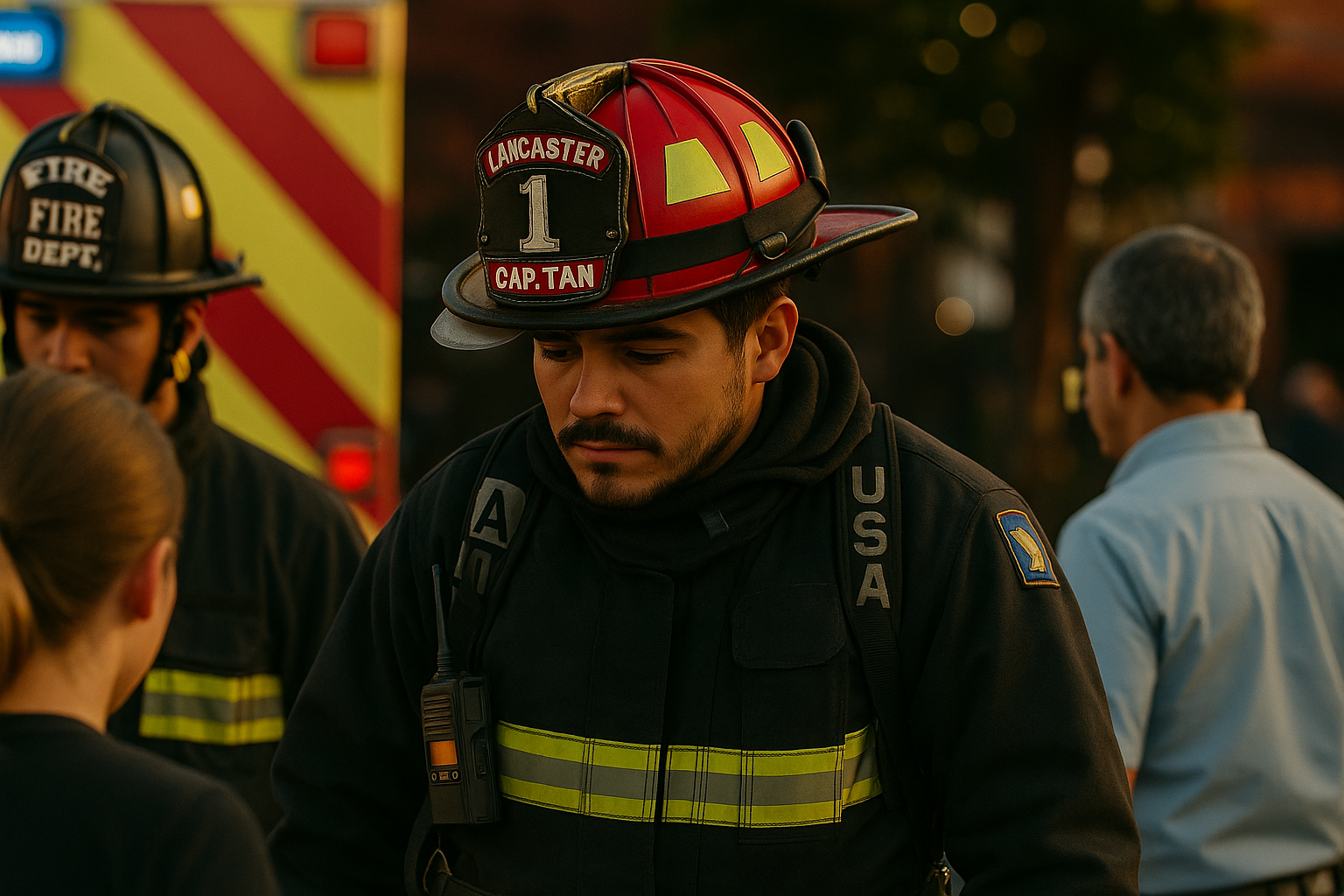By: Design for Change
Categories:
Why Do First Responders Need Specialized Addiction Treatment Programs?
You are here:To understand why first responders require specialized addiction treatment, it is necessary to have some knowledge about who they are and what they do. These dedicated, caring, and skilled individuals often put their own lives at risk to help others during an emergency. It doesn’t take long for the stress and trauma of the job to cause negative effects that can lead to substance misuse and addiction.
First responders are required to sustain mental, physical, and emotional balance to effectively deal with the challenges of their job. Along with specialized training, these skills enable them to respond to an emergency in a calm and controlled manner.
It’s not unusual for them to face pulling people to safety from fires, crashes, crime scenes, or natural disasters. This constant exposure to danger, injuries, or death takes a psychological toll. As a result, some first responders turn to alcohol or drugs to self-medicate their trauma symptoms. In addition, they are at a higher risk of suicide.
For these reasons, addiction treatment for first responders should be designed to address their unique and specific needs.
In the U.S., several groups are classified as first responders. They include:
- EMS (Emergency Medical Services)
- Firefighters
- Law enforcement (police officers, sheriffs, etc)
- 911 Dispatchers (public safety)
- Public works employees
- Military personnel
In some parts of the U.S., doctors and nurses can be classified as first responders.
Difference Between First Responders Addiction Treatment vs. Regular Programs
Many addiction treatment programs offer personalized plans that are customized for each client’s situation. However, first responders’ reasons for substance misuse differ dramatically compared to others in treatment. Because of their unique trauma, first responders require treatment specifically tailored to the challenges of their profession.
A first responders treatment plan should include elements that address occupational stressors. Among the standard rehab options, first responders programs may also include the following:
- Trauma-Informed Care
- Peer support groups consisting of fellow first responders
- Family and couple counseling
- Critical Incident Stress Management (CISM)
- Psychodrama Therapy
- Biosound Feedback Therapy
- Dual Diagnosis Therapy
Studies show that PTSD symptoms in first responders are associated with their increased risk for substance misuse, with about 26% screening positive for alcohol misuse. What began as a drink to decompress after a stressful day on the job gradually became a harmful drinking problem. Sadly, many of them fail to seek treatment because they don’t want to be seen as unfit for duty or they fear losing their job.
Common Addictions Among First Responders
Due to the emotionally charged work environment, first responders’ rate of substance misuse is high. Alcohol is the most commonly misused substance, however, other substances are frequently used as well. They include, but are not limited to::
- Marijuana – used for stress relief and pain management
- Painkillers – used following an injury so they can return to work
- Benzodiazepines – used to reduce anxiety but are highly addictive
Many first responders struggle to reconcile their own emotions while at the same time being supportive to patients and families. These day-to-day challenges often lead many of them to want to dull the intense emotions through drug or alcohol use.
Co-Occurring Mental Health Disorders Among First Responders
First responders who need addiction treatment often have a mental health issue that exacerbates their substance use. This situation is known as dual diagnosis or co-occurring disorders. Studies show that about 50% of people with SUD also have a mental health disorder, and the opposite is also true.
Mental health disorders that accompany substance abuse include PTSD, depression, bipolar disorder, eating disorders, dissociative disorders, ADHD, schizophrenia, OCD, and anxiety disorders.
When a person has co-occurring disorders, treating both simultaneously is vital to achieving lasting recovery. This approach includes behavioral therapies, support groups, and medication if needed. Behavioral therapies may include CBT (cognitive behavioral therapy) and DBT (dialectical behavioral therapy), among other therapies and activities. Support groups should include other first responders who are struggling with the same issues.
Customized First Responders Wellness Program at Design for Change Recovery
The demands of being a first responder expose these individuals to high-stress situations that often result in trauma-induced substance use. The nature of the job is demanding and emotionally draining, leaving many of them with mental health issues in addition to drug and alcohol misuse. For these reasons, Design for Change provides a treatment program designed specifically for their sensitive needs.
At Design for Change, we appreciate those who dedicate themselves daily to protecting our cities and neighborhoods. We understand how the challenges can be overwhelming, leading to drug and alcohol problems. Our program includes therapies and activities that help first responders learn better ways to cope with the trauma they face every day without the need for addictive substances.
If you or someone you know is a first responder who struggles with SUD, contact our Lancaster, CA facility today to speak with a treatment advisor. Aft more about our specialized program, you’ll be ready to get the support and treatment you deserve and need.
Sources:
firstresponderwellnessweek.com/ – First Responder Wellness Week
firerescue1.com/ – 10 Red Flag Phrases that Signal First Responders are Struggling with Stress
medlineplus.gov/ – Dual Diagnosis


